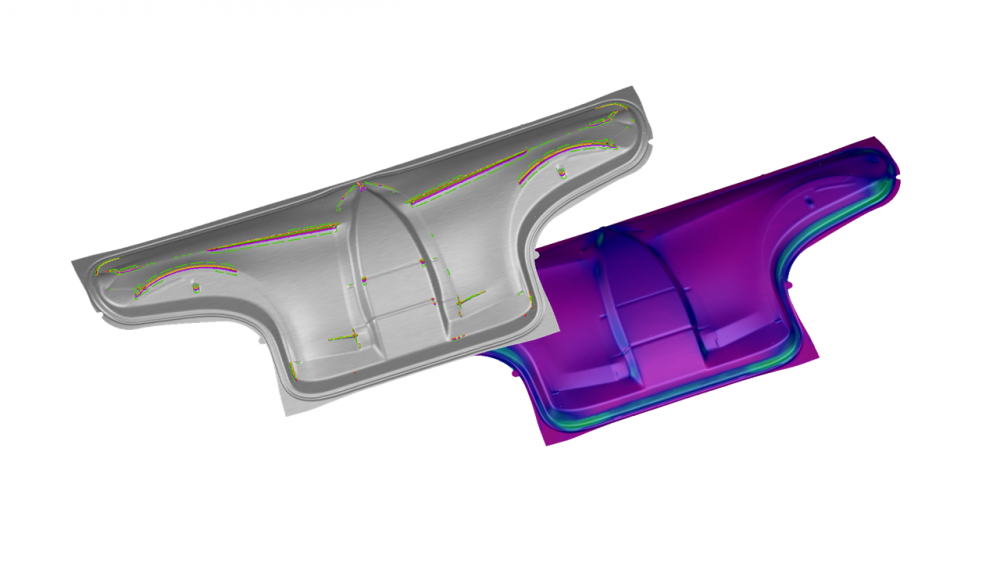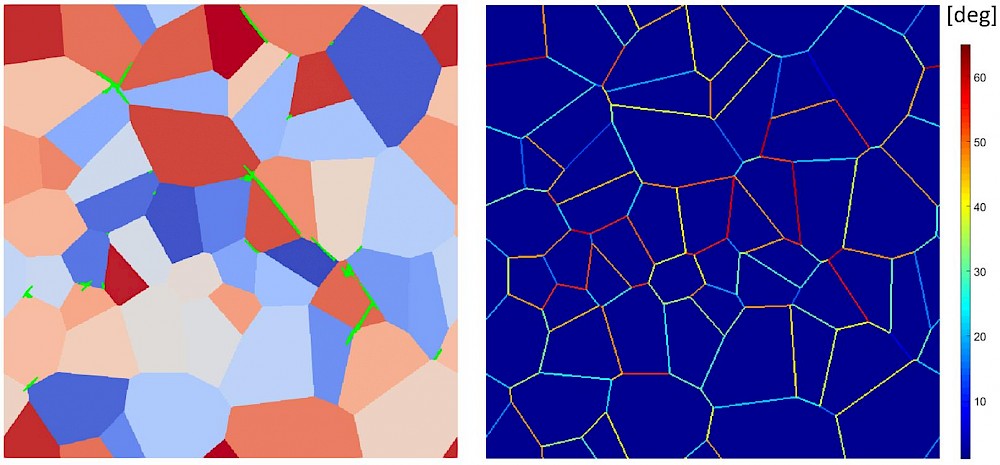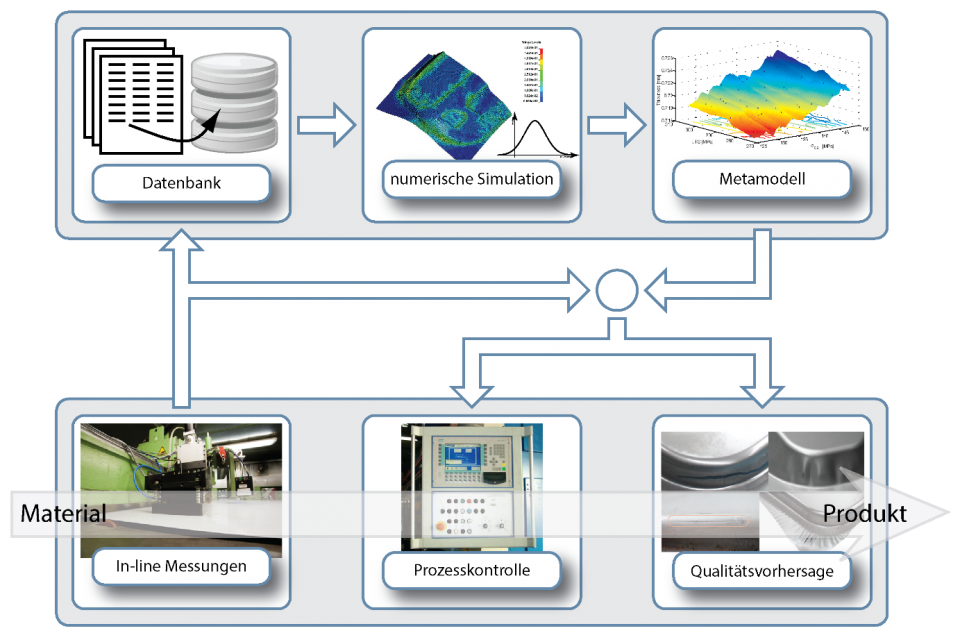In the field of forming technology our field of expertise includes the simulation of forming processes, which includes material- and damage-modelling as well as robustness analysis and intelligent control systems for forming processes. Besides the different simulation tools like AutoForm, LS-Dyna and Pam-Stamp, all necessary test equipment for determining the material characteristics (tensile test machine, Bulge-Nakazima test, deformation dilatometer, etc.) is available.
Virtual Process Modelling

The aim in this field is not only to exactly reproduce the real behavior of processes through latest modelling methods, but also using these methods for automatic and intelligent optimization of manufacturing processes. The simulation methods, specifically developed for this, are used for virtual robustness control. The generated outputs, the “knowledge” gained through the numerical simulations, are represented by metamodels, saved and made available for further application (process analysis, try-out, process control).
Material Modelling

Mastering the material is a basic prerequisite for forming processes and the exact representation of the material behavior is essential for accurate virtual process modelling as well. In order to specify the forming behavior, the yield curve is used to describe the hardening behavior, the yield locus is used to describe the start of yielding and the anisotropy. Furthermore, failure criteria, based on different methods, are implemented as well. In cooperation with our industrial partners, also new models for the description of material behavior are developed.
Robust Processes

Based on numerical methods and inline measured process parameters, intelligent and interconnected production systems are set up, which cover the whole process chain from raw material to the final product. For this purpose, the virtual process model, which contains the virtually generated data (the know-how of the system), is coupled by metamodels with the real production. Intelligent process control systems, that use these metamodels and the inline-measured data, enable a smart production. This allows complex processes with narrow process windows to be adapted to the instantaneous production conditions.

